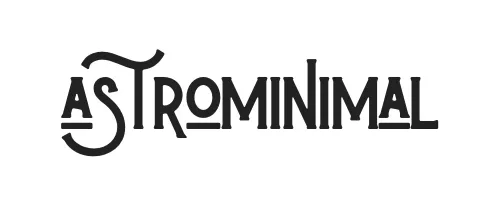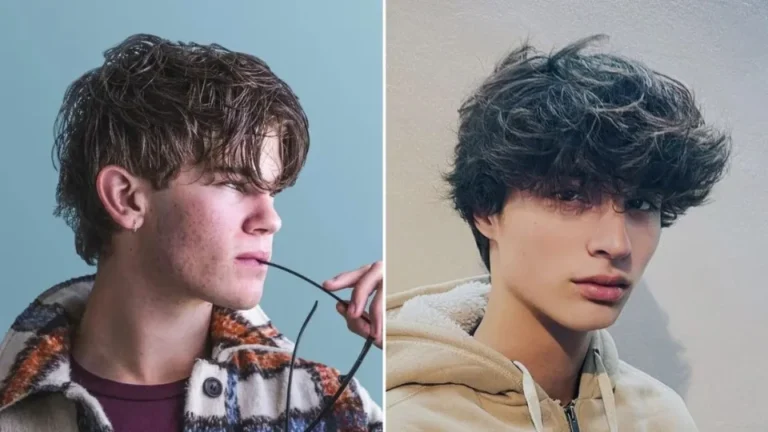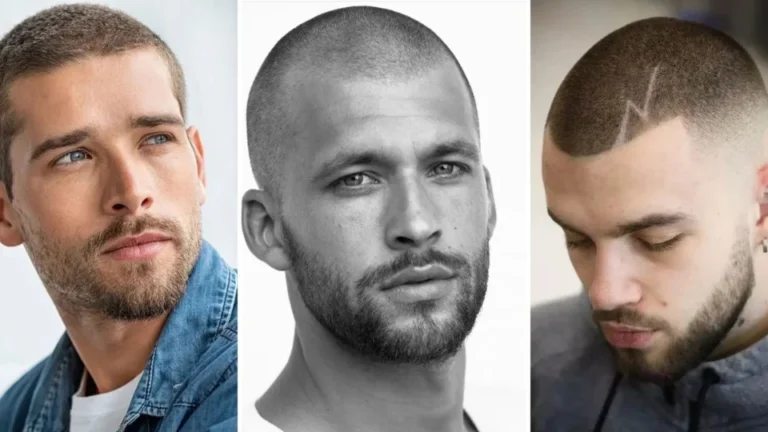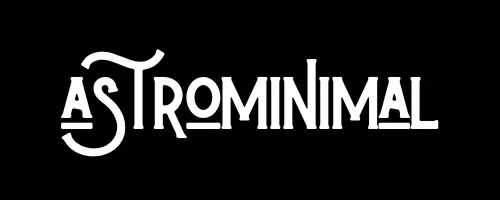Everything You Need to Know About Perms

Perms have come a long way from their frizzy, high-volume reputation in the ’80s. Today, they offer a wide range of curl patterns, styles, and techniques that can suit nearly every hair type and lifestyle. Whether you’re looking to add waves, curls, or simply more volume to your hair, understanding how perms work is key to getting the results you want.
This guide covers everything you need to know about perms: what they are, the different types available, how they’re done, pros and cons, and how to care for your permed hair.
What Is a Perm?
A perm (short for “permanent wave”) is a chemical hair treatment that changes the structure of your hair to create waves or curls that last for several months. It works by breaking the bonds in the hair shaft and reforming them in the desired curl pattern using rods and a chemical solution.
Today’s perms are much more customizable and gentle than older versions. You can now choose the size, tightness, and shape of your curls to suit your personal style.
Types of Hair Perms
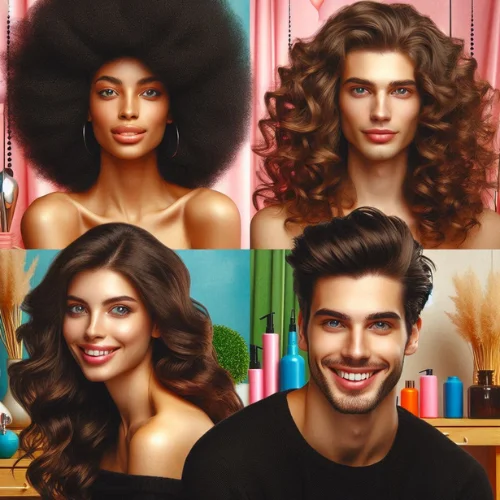
There are several types of hair perms, each offering different textures and effects. Choosing the right one depends on your hair type, desired curl pattern, and maintenance preference.
1. Cold Perm

One of the most traditional techniques, a cold perm uses an alkaline solution to form tight, well-defined curls. It’s ideal for thick, coarse, or resistant hair types.
2. Digital Perm

Also known as a “hot perm,” a digital perm uses heat and a milder solution to create loose, natural-looking waves. It’s ideal for soft curls and works best on fine to medium hair.
3. Body Wave Perm
A body wave perm creates loose, soft waves for a fuller, voluminous look. Great for those wanting texture without tight curls.
4. Spiral Perm
A spiral perm gives you tight, springy curls. This type is best suited for long hair and delivers a more dramatic transformation.
5. Root Perm
A root perm targets only the roots of the hair to add lift and volume—perfect for flat or fine hair that lacks bounce.
Pros and Cons of Getting a Perm
Pros:
- Long-lasting curls or waves (typically 3 to 6 months)
- Adds body and volume to flat or fine hair
- Reduces the need for daily heat styling
- Wide range of styling options
Cons:
- Can cause dryness or damage if not maintained properly
- Not recommended for heavily bleached or damaged hair
- Requires a commitment to specific haircare routines
- Not all perms work on every hair type
The Perming Process: Step-by-Step
Knowing the step-by-step hair perming process can help you feel more confident about the treatment.
- Consultation: Your stylist assesses your hair texture, history, and desired results.
- Rod Placement: Hair is wrapped around perm rods in a pattern depending on the style you want.
- Chemical Application: A perm solution is applied to break the hair’s natural structure.
- Processing Time: The solution sets for 15–30 minutes, depending on the formula and hair type.
- Neutralization: A neutralizer is applied to re-bond the hair into its new shape.
- Rinse and Style: The rods are removed, and the hair is gently rinsed and styled.
How Long Does a Perm Last?
A perm typically lasts 3 to 6 months, depending on your hair type, the kind of perm, and how well you care for your hair afterward. As your hair grows, the curls will naturally relax, and touch-ups may be needed every few months to maintain the look.
Hair Types and Perm Compatibility
Not all perms work well on every hair type. Here’s what to keep in mind:
- Fine Hair: Body wave or digital perms are ideal
- Thick Hair: Cold perms and spiral perms provide more definition
- Color-Treated Hair: Use caution—opt for gentler formulas
- Damaged Hair: Perming is not recommended unless hair health is restored
Always consult a stylist before proceeding to assess your hair’s condition and compatibility with perming chemicals.
How to Care for Permed Hair
Caring for your permed hair is essential to maintain its shape, prevent frizz, and extend the life of your curls.
Top Tips:
- Wait before washing: Do not wash your hair for at least 48 hours after getting a perm
- Use sulfate-free shampoo: Keeps your curls intact and prevents drying
- Deep condition weekly: Helps restore moisture and elasticity
- Avoid heat tools: Excessive straightening or curling can ruin the perm
- Use a wide-tooth comb: To detangle without breaking curls
- Sleep with care: Use a silk pillowcase or wrap your hair to maintain the curl pattern
Common Questions About Perms
What does a perm do to your hair?
A perm chemically alters the structure of your hair to form a new curl or wave pattern.
Can you get a perm if your hair is dyed or bleached?
Yes, but proceed with caution. Always have a stylist evaluate your hair’s health first.
How much does a perm cost?
Perm costs vary depending on the type, length of hair, and salon, ranging from $80 to $250+.
Can you straighten permed hair?
Yes, but it should be done with care. Frequent heat styling can weaken or reverse the curl.
What should I expect after a perm?
Expect some dryness, extra volume, and the need for a dedicated haircare routine.
Final Thoughts
Understanding everything you need to know about perms is the first step to deciding whether this classic hair treatment is right for you. From the many types of perms to the perming process and aftercare tips, today’s perms are more customizable and gentler than ever before.
If you’re looking to add texture, volume, or long-lasting curls to your hairstyle, a perm might be exactly what you need. Just remember—consult a professional, choose the right type for your hair, and commit to a healthy haircare routine for the best results.

Maria Jones
I’m Maria Jones, and I’ve been in the hairstyling and fashion game for years. I love mixing modern trends with a bit of edge to create standout looks. It’s not just about hair—it’s about helping people feel confident and express who they really are through style.
